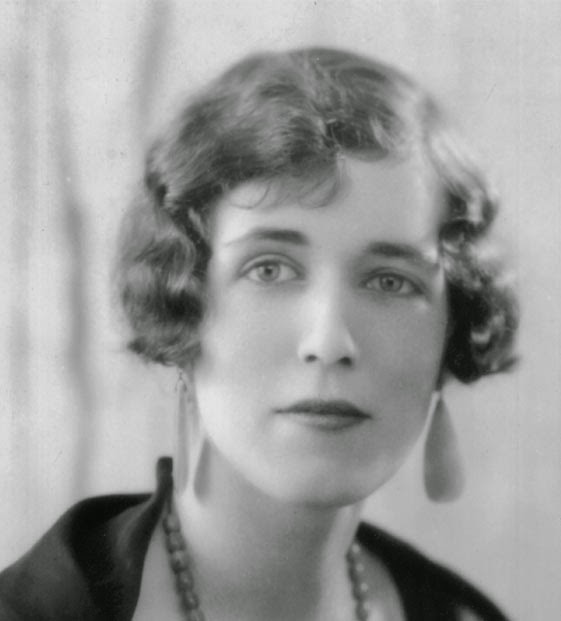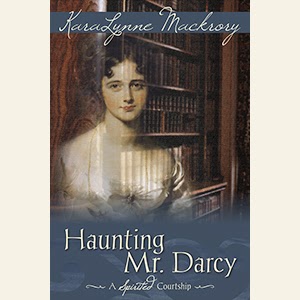Years ago, when I was a teenager, I discovered the works of Jane Austen. They were right there, on my mum's bookshelf, it was raining, I had vaguely heard of them, and so I gave them a go. I read all six of the main novels in pretty quick succession but then there were no more. What could I read next? I expressed my dilemma to my mum, who suggested that I might like to try Georgette Heyer. Luckily, my mum is a bookworm too, and she had a lot of Heyer's books in the house, or I'd have had no hope of reading them at that point, there were only a few of her works in the library. I started with
April Lady, because it was a slender volume, and went from there!
Georgette Heyer was an English novellist who had a career spanning over 50 years. She wrote some detective stories and thrillers but what she is best known for are her Georgian and Regency romances. She wrote over 40 of them, and is regarded as the person who invented the historical romance, and specifically the Regency Romance genre. Unsurprisingly, for the time she was writing, Heyer's books are 'clean' romances and don't have any sex scenes.
One thing Heyer's work is notable for is the research. How many times have you read a historical romance only to be jarred out of your immersion in the world of the book by a word which is too modern, or social conventions being incorrect? I would be extremely surprised if this happened to you while you're reading Heyer. She was more careful than that. But not only was her work well-researched, it's also well-written, and extremely entertaining. Her characters are usually well-rounded, there is humour within the books and sparkling dialogue. Often you will see historical romances being marketed as being in Georgette Heyer's style, and so often when you read them you are sadly let down by the marketing hype.
Heyer started writing to entertain her brother as he convalesced from illness but as she became successful she had to write because she was the main breadwinner for her family. She started off with two younger orphaned brothers to support, and later a husband and a child of her own. This meant that she couldn't always write what she wanted, more factual history, but instead what would sell, historical romance. From what I've read about her, she didn't hold her own genre in high regard, though she felt her work was well-written within that genre. She boiled down her heroes to two types, Mark I - "the brusque, savage sort with a foul temper" and Mark II - "suave, well-dressed, rich and a famous whip". Though you can see examples of both of this type of hero in her work, she really wasn't doing herself justice to say that things were that simple!
I thought I'd draw up a top 10 of my favourite Heyer reads but I'm afraid I could only manage a top 8 - this is not because there are not 10 good reads, but because there are too many that I love, I really couldn't decide on the last two, as there are about another 8 or 10 favourites I've left off the list! I have chosen the cover photos from the Pan covers from the 70s - I know they are a little bit lurid, but I like them, because they were created by somebody who had at least read the book, and usually have an identifiable scene from the story, rather than a bit from an old painting which bears no resemblance to the physical description of the characters! The most recent covers don't do this, but the ones previous to that were really awful in this regard.
Here is my list, in no particular order:
Arabella is a young lady who has a besetting fault - she is impetuous. She overhears Mr Beaumaris's unflattering opinion of her, and to put him in his place she tells a big lie. The lie doesn't go away, and in fact she becomes the toast of the season. Has this ruined Arabella's chances of making the most of her London season and finding love?
Frederica is a lady who is the eldest of an orphaned family - she has three younger brothers and a stunningly beautiful younger sister, Charis, who Frederica is determined will have a London season and the possibility of a brilliant match. Frederica throws herself on the mercy of a distant relative, the selfish Marquis of Alverstoke in a move that ends up turning his life upside down
The Grand Sophy sees the redoubtable Miss Sophia Stanton-Lacy go to stay with her aunt's family. She finds them under the rule of her overbearing cousin Charles Rivenhall, who is about to marry an extremely tiresome young lady who will make the family miserable, unless Sophy can bring her organisational talents into play.
In
Friday's Child, the adorable Hero Wantage seeks to avoid marrying the curate and Viscount Sheringham believes he is brokenhearted, so he offers Hero a marriage of convenience. However, Sherry soon finds that he has underestimated how much work it is to protect a naive young lady navigate through the waters of the Ton.
Cotillion is fairly unusual in that it features an anti-hero. The Honourable Freddy Standen is coerced into helping his uncle's ward, Miss Kitty Charing, by agreeing to a fake betrothal - yes, that is right, my beloved fake fiancée trope! Freddy is pretty foppish, but his grasp on social niceties and kindness prove extremely useful for a young lady in her only London season as she inexpertly plans for her future and tries to help her loved ones.
The Reluctant Widow - from fake betrothals to fake weddings - Miss Elinor Rochdale is travelling to a new job as a governess when she makes the fateful move of getting into the wrong carriage. She is persuaded by Lord Carlyon to marry a dying man, Eustace Cheviot and by the morning she is widowed. Her husband's death was an accident, but strange things are afoot at Highnoons, and there is a mystery to solve.
The Unknown Ajax sees an unwanted heir arriving at the family home. Major Hugo Darracott was the only child of Lord Darracott's disowned second son, Hugh, who married against his father's wishes. Upon the accidental death of the uncle and cousin before Hugo in the succession, Lord Darracott sends for his despised heir. Hugo is proof that appearances can be deceptive, though, and he is just the man to rely on in a tight squeeze when adventure comes a bit too close to Darracott Place.
The Nonesuch is the nickname of Sir Waldo Hawkridge, who inherits a spare estate (how tiresome!). He travels to see the estate with his young cousin Julian, and they meet some local families. When Julian meets the beautiful Miss Tiffany Wield Sir Waldo senses the danger of an entanglement for his young relative and he works in cahoots with Tiffany's governess/companion, Miss Ancilla Trent to prevent anything regrettable happening.
Do you have a favourite Heyer book? Or are there any authors of historical romance that you feel can fill her shoes? I'd love to hear your thoughts and recommendations on this.
 Ellie Bell used to be a professional ballet dancer until an injury led to her retirement. Now she teaches ballet to young children. Ellie has spent the last 11 months focussing on her work as she's been on a self-imposed man-free year to try and break herself of her bad habits of dating sexy bad boys who will just break her heart. Ellie's parents are both dead and the only real family she has is her brother Sam.
Ellie Bell used to be a professional ballet dancer until an injury led to her retirement. Now she teaches ballet to young children. Ellie has spent the last 11 months focussing on her work as she's been on a self-imposed man-free year to try and break herself of her bad habits of dating sexy bad boys who will just break her heart. Ellie's parents are both dead and the only real family she has is her brother Sam.


















